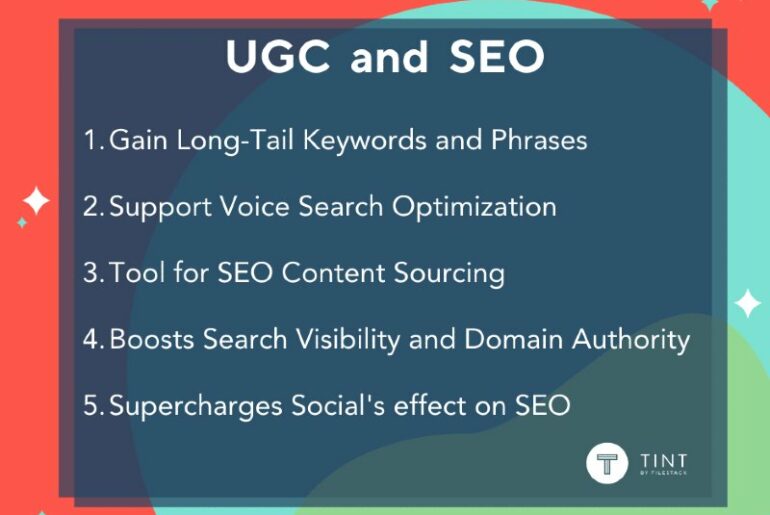Social Studies Podcast is a talk show produced by TINT about marketing, social media, and technology through the lens of the industry’s most innovative minds. Hosted by Nathan Zaru. In this episode we welcome Nik Baron, head of SEO at Grammarly. You can find him @nikbaron and tweet us with comments and requests @TINT and @yes.
Nathan: Hello and welcome to the next episode of Social Studies. Our guest today is Nik Barron, head of SEO at Grammarly.com. Nik, welcome to Social Studies.
Nik: Woo!
Nathan: Hahaha! Nik can’t wait to talk about SEO.
Nik: I had some black tea, some puerh tea.
Nathan: Some puerh tea, some chocolate puerh tea.
Nik: Chocolate puerh tea.
Nathan: Okay, so Nik is jacked. Just so all our listeners know, I’ve known Nick for a few years now in San Francisco and he has been an SEO specialist for a while now and he’s doing it over at a company that’s growing super, super fast, Grammarly.com. So Nick, do you want to tell our listeners a little bit about yourself, what you’re up to and your background?
Nik: Sure, yeah. So I came to Grammarly a little over two years now. Grammarly is the worlds best automated proofreaders. The way it works is you download the Grammarly extension, it’s available in Chrome right now, hopefully in other browsers soon, and you’re basically able to correct all sorts of mistakes. Punctuation, grammar, spelling, contextual grammar, a lot of things you don’t really necessarily remember like, a minute out of school. In your emails, Facebook messages, tweets, anything you write online.
Nathan: If I’m not mistaken, this is pretty much the grammar editor online right now.
Nik: Yeah, I mean, it’s interesting you know we’re basically creating a market. There’s nothing else like it. Our real competition is Microsoft Word, I’d say Microsoft Words spelling grammar checker, as well as the general idea that people don’t really care about the way you write when really the opposite is true and people do notice your mistakes and they are a barrier to entry for a lot of opportunities in life.
Nathan: And you do SEO.
Nik: I do, yeah, totally stumbled into it. It was one of those situations sometimes kind of you serendipitously fall into a relationship where it really clicks and then you kind of figure out the details later. I fell in love with Grammarly before I knew anything about SEO and then started talking with Brad our CEO and he brought me in to get started with our in house SEO team.
Nathan: So let me put something out there for you readers, Nik is in his early 20’s and I don’t know any other marketer that I don’t think at all, who has come so far in marketing in such a short amount of time. And Nik is smiling and blushing right now, but Nik I don’t know many people in their early 20’s falling in love with SEO. How does that go down?
Nik: How do you fall in love, well first of all I’m very flattered. How do you fall in love with SEO? I think that I, naturally, and I think you can probably empathize with this as well maybe some of the listeners as well, I love finding the shortest possible path to my goal and it’s usually not the most beaten path, the most walked path. I love finding paths, and shortcuts, and tweaks and loopholes that will get me to my goal faster and I think SEO is the absolute embodiment of that as a marketing discipline. SEO is about turning quarters into dollars faster than you can with any other channel.
Nathan: Turning quarters into dollars, cool, so you know everyone knows the term SEO and I think a lot of people think they understand what it is but you’re going to tell us today about why link building is not dead. But before we hop into that, can you just give us a lay of the land SEO in 2015 what’s that look like right now and what’s a practical guide for anyone getting started?
Nik: Yeah, so just to cut through some of the noise I’m sure for a lot of people this is already common knowledge, but really since the inception, well since really Google started, when Google kind of got started the way search engines worked is that they counted the frequency of keywords on every single page on the web and just presented the pages to you when you searched for stuff that had the highest frequency of those keywords right? Google came along and the real game changer in search quality for Google was that they started to try to measure authority. And the way that they tried to measure authority is who, how many people are linking to your page or to your site and who are those people? Is it Nik.Blogspot.com, or is it the NewYorkTimes.com? So that was a real game changer, and that is to this day the biggest ranking factor, the biggest indicator and the biggest lever that you have to rank for competitive search terms in organic search is to build links. Or, to build authority to your domain and to your pages and link building gets thrown around a lot like link building is dead, SEO is dead, but the fact remains that while it is changed a lot and while what works has changed a lot, that is still the primary ranking signal that search engines use to determine whether your site is legit or not.
Nathan: Back in like, ’95, ’96, ’97, it was called back rub. Google backrub was like the name of the algorithm. I don’t know if you know this, I’m sure you probably do, I’ve read this before, they initially, Larry and Sergey based the algorithm on academic medical documents, because in, and I’m not in the medical field obviously, but in medical papers people cite each other, and medical papers that are cited a lot are considered really high quality medical papers. And so, that’s what they actually based it off of and that actually is a perfect representation of what the Google algorithm is right now. I read that somewhere, I don’t know if you’ve read that.
Nik: Yeah, I mean, I actually didn’t know that it was based on medical citation but it makes a lot of sense. Link building can sound like this, or links or authority can sound like this big abstract concept but at the end of the day what is a link, right? A link is at its best an endorsement from one page to another. It’s like you saying “Hey, you know what? Everyone that goes to my site, I want you to know about this other site,”. And so if you can count together those endorsements, and if you can quantify them and if you can weigh them in, that immeasurably improves the quality of the search results that you’re able to present.
Nathan: So before we kind of dive into your blend of SEO, what do you mean by turning quarters into dollars? I mean that sounds awesome right? Any marketer anywhere if you tell them yeah I can give you a quarter you give me a dollar back I mean shoot, where can I give my credit card?
Nik: Yeah, that’s a great question. So I think for a lot of, for really any business and especially any kind of start-ups whether you’re a consumer start-up, or an enterprise start-up, any digital business needs to acquire customers, right? And so at the end of the day whether you’re going out on the street and handing people discount codes, or whether you have a Super Bowl ad, you’re spending a certain amount of money to acquire a certain amount of customers that spend a certain amount of money with you so that you can go out and spend more money on customers, right? And so it’s not always measured well, it’s sometimes really hard to measure but it’s always happening, right? And so of all the, there’s a lot of different marketing channels right? You can buy a Super Bowl ad, you can run a Google AdSense campaign, or AdWords campaign, you can do a lot of different things. For me and what I’ve seen, organic search and SEO is one of the user acquisition channels that can give you the highest return on investment which is one of the things that make it so attractive to me, I just think that’s really cool.
Nathan: Okay, so how do you do SEO?
Nik: How do you do SEO?
Nathan: By the way SEO is search engine optimization, obviously we’re past that point.
Nik: Yeah, pretty dated term I think but yeah there have been other … I’ve listened to other episodes on the podcast and there have been some really good information that has been said about how to drive users. I think that the thing that I’m most existed about for SEO and your friend Graham was talking about this as well, is the fact that a lot of different channels are kind of merging together into one big function and channel called content marketing. And so what is content marketing? I think content marketing is understanding who your users are, who your potential users are, who influences your users and your potential users, and creating content that is going to through those influencers reach your end users.
Nathan: Yes.
Nik: And that’s pretty simple right? I think the key thing that a lot of people leave out is the part where you actually have to go out and pitch people the content that you’re creating. A lot of people I think are spending a lot of money and a lot of time on creating really, really great content and then they blast it out on their social media channels, maybe send it out in their email newsletter and they forget the most important, or the most important part after you’ve created it which is actually going out, doing the manual grunt work of finding people that are gonna be really into what you’re talking about that have reach and authority and getting them to talk about it.
Nathan: So how do you find these people?
Nik: How do you find these people, that’s a very good question. So there’s a lot of great … I would encourage everyone to go out and search for keyword persona research, there’s a ton of great templates out there, there’s a ton of great blog posts. But essentially what you do is you try to paint a picture, draw a narrative around who are the types of people that you want on your website, that you want using your product.
Nathan: Customers.
Nik: Right, so an example could be profile is Nathan is really into nutrition, is super athletic, really into growth marketing, uses his credit card to buy stuff online all the time and works really hard.
Nathan: I have no idea who this person is by the way.
Nik: So you take … that’s probably a poor example.
Nathan: Nah, it’s great.
Nik: But you take these profiles and then you say okay, what needs does Nathan have? And of those needs, which ones are not being met? And of those needs that Nathan has that are not being met, which ones can I provide value to? And so then you can start thinking about okay like, what is the best way to address this need? The best way to address this need simply a landing page that elaborates on why my product is perfect for Nathans need or the best way to draw Nathan in a blog post that’s maybe only distantly related to my product but is going to teach Nathan about something that he’s interested in and maybe draw him in later on to my product. Or maybe its like, a funny video but all something distantly related that where Nathan never would of searched for it himself but just but virtue of it being funny he kind of stumbles into it and but that way learned about the company any by that way is going to eventually convert.
Nathan: So I see what’s going on but I want to kind of paint a little bit of the picture for all of our listeners right now. SEO as an industry has been around for what 20 years I guess? Definitely before Google, and Google really helped solidify the fact that you need links, people, websites linking back to your website. And so for a long time, late ’90’s, early 2000’s and beyond, the push was for back links, back links, back links, the ground work you’re talking about need to get back links, need to get people to link to my website, but then something kind of different happened as you’ve already intimated is that okay maybe the value of these links are different according to who’s linking it, what websites are linking to you. And so there’s been a big push in the past few years for content, right? Content, content, content just like you said though, landing page or the blog, right? But you’re explicit opinion right now is that … well let me back up a little bit, people got in trouble for building links, people got in a lot of trouble for building links. Nik, tell our listeners what happens if you build links the wrong way?
Nik: I mean Googles gotten really, really good at detecting whether a link is the result of a genuine endorsement or whether you’re trying to gain the system, perhaps by paying someone …
Nathan: Right.
Nik: Perhaps by spinning up a site that really belongs to you, but pretending it doesn’t belong to you and then linking to your other sites. Google’s gotten really good at detecting that, and when they do detect it, it can range from just silently removing some pages or lowering your rankings to completely taking your whole domain off the index indefinitely.
Nathan: Right, and the point is if you gain the system and then they catch you, you’re gonna get penalized heavily and removed from Google search is all. I’ve actually seen this personally in some companies in the past, right? So that’s why link building has had a bad rap recently, and content marketing has had a good rap. Make content, people love it, people share it, they link to you great. And I believe both of those cases, but your explicit case right now is that link building is not dead, but a specific kind of link building which is to say legitimate white hat link building is that right?
Nik: I would say so, yeah I think link building and content marketing are not mutually exclusive. In fact, I think that they’re codependent. I don’t think you could do good, you could build good links … one good way to build good links is through content, and I don’t think that unless you’re a huge brand already you can’t build enough links to stay competitive for competitive terms if you don’t build links.
Nathan: So can you do content marketing without SEO and link building, or can you do link building without content marketing?
Nik: I think you can do link building without content marketing.
Nathan: Okay.
Nik: I also think that obviously both is possible, but I think that where most companies stumble is that they put stuff up, they shoot it out through social media and no one outside of their addressable market actually sees it. We’ve probably talking on some different tangents, I’m glad that you tied it all together a little bit and like how does this fit into SEO right? So the goal of SEO, probably should of said this at the beginning, is to drive organic search traffic to your product. And not just drive organic search traffic to your product, but to drive people to your product eventually, right?
Nathan: Yeah.
Nik: And so what does that mean right? When someone searches for something, they have a keyword that they’re searching for and they find something that matches that keyword, so the keyword usually expressed some kind of need, some kind of intent and then the thing that they find right, that is a match to what they’re looking for.
Nathan: At least that’s Google’s goal.
Nik: Right, that’s the ultimate goal is to match with something you’re looking for, and so content marketing is all about creating the thing that you want people to find right, whether that’s a landing page, I mean I would count your homepage as part of content marketing.
Nathan: I agree, totally.
Nik: Every blog post you create, you want people to find that and eventually make their way to your product or whatever you’re trying to get them to do. Your search query is kind of the intent is the keyword, right? And so if your goal is to connect your content to those people that are searching for that then you basically need the best possible way to show search engines that you’re the most relevant for that keyword and I think that by that logic you need to build links to your content to get people to your page of your site.
Nathan: Excellent, and is there any special tricks, tips strategies for link building, obviously you can go through and find user personas for people, sorry, websites that have traffic of your ideal user persona. I mean, do you email them, do you tweet them or what? Any special tricks there?
Nik: Yeah, that’s a great question, so how do you actually take this to the bank right?
Nathan: Exactly.
Nik: I think what anyone that wants to kind of set aside a couple hours a week to really drive this should do it figure out what personas you want to attract, that’s the first step. Second step is really trying to find the people that influence those personas right? And you can do that with a bunch of different tools, one of my favorite ones is SEMrush, you can use the AHREFS content explorer, there’s a bunch of different tools to try to find who has the loudest voice in that niche for that profile. And then what you’ve got to do is you’ve got to figure out a way, that’s your starting point, figure out a way to create value for them in a way that they want to share whatever you have to say with their audience. The best possible way very tactically I think to do this is once you find an influencer that has authority, that has reach into the community that … the profile that you want to do after, the best way of actually going after them is think of some based on what they have posted about and what they have created and shared in the past.
Nathan: On their own channel.
Nik: Right, in their own channel, think about what value you could offer to them, right? Think of an angle, think of a couple pitches, think of some ideas, sketch some things out and contact them and say like “Hey, I am doing this thing, you’re an expert on the subject matter, what do you think of this, would you be interested in helping me out with this and partnering with me on this?” And you’ll find that the culmination of providing some relevant valuable content and stroking their ego is a recipe for success and if you can get someones buy in before you even have to go out and write that blog post or create the info-graphic, create the video, that’s a great way of sealing the deal before you have to go out and do a bunch of work.
Nathan: And that is how you turn quarters into dollars. Nik Barron, thank you so much for enlightening us today.
Nik: Thank you so much for having me.




